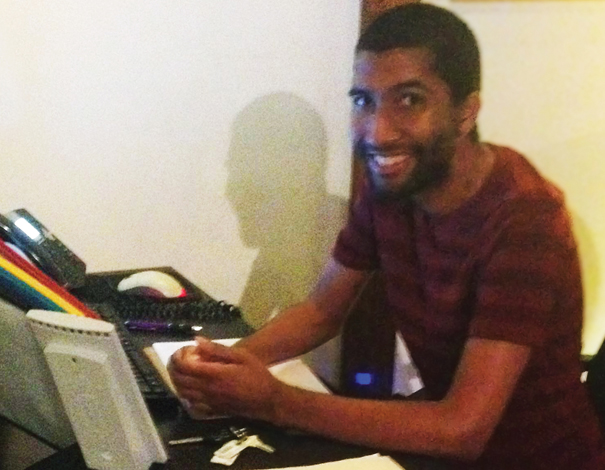At 19 years old, Shane was looking forward to the start of his second year of college. He joined the cross-country team and worked out twice a day. Then about a week before school started, Shane woke up feeling miserable. What seemed like a bad cold or the flu turned out to be something much more serious.
Doctors found Shane’s blood counts were extremely low. He had aplastic anemia. His doctor immediately admitted him to the hospital. After trying another treatment first, a blood stem cell transplant was Shane’s best hope for a cure. He had his blood stem cell transplant shortly after the new year.
His recovery hasn’t been easy, but his transplant journey led him down a new path that he loves. Here’s his story, in his own words.
When I found out I had aplastic anemia, it came as quite a surprise. I was a very active person, and I’d felt fine until I woke up one day with a fever and sore throat.
Recovery from transplant has definitely had its ups and downs. Six months after my transplant, the steroids caused me to be about 60 pounds heavier than I’d ever been. I had some skin issues that fortunately did not turn out to be graft-versus-host disease (GVHD). I was going back to the hospital about once a week for follow-ups. It was hard to deal with.
I was used to being social and active, and I was stuck in the house. I couldn’t be in the sunlight and I was uncomfortable in my own skin. I had to be careful who came to see me because my immune system was still recovering, but it helped to have visits from friends. I didn’t always deal with the emotional aspects of recovery very well. Looking back, I should have taken better care of my mental health and reached out to a counselor or someone who could help me.
Finally in September, I was able to start volunteering at my local community arts center again. It was a saving grace to have some responsibility outside the house. But at the same time, I was dealing with another disappointment.
I couldn’t go back to college the fall after my transplant because of setbacks in my recovery. Thinking about going back was what had kept me going. I took it pretty hard, but the arts center scheduled me for more time and took me on as a volunteer intern, so that helped. I also started tutoring adults working on their GED. And I started volunteering at a local crisis center. Over time, the crisis center offered me a paid position.
Now three years after transplant, I’m doing pretty well. My anxieties aren’t about my transplant anymore but like those of any 23-year-old asking, ‘What am I going to do with my life?’ I don’t feel alone anymore in feeling like, ‘What’s next?’ I love my job at the crisis center, and I’ve discovered that this is the type of work I want to keep doing in my life.
My life took a different path than I expected, but it’s led to something good and I’m thankful for that.
Your sense of purpose
At this point of recovery, you may experience frustration and disappointment if you’re dealing with setbacks. But, there are likely many positives in your day, too. Focusing on the positives can help with your emotional health. Ask:
- What kind of progress have I made in my physical recovery?
- What kind of progress have I made in my emotional recovery?
- What do I most enjoy doing?
- What gives my life purpose?

